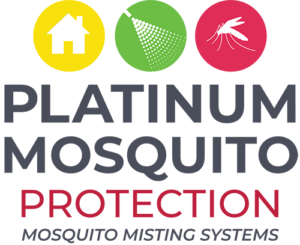Using genetically modified mosquitos to fight the virus
What happened to Zika? It seems that after November, Zika disappeared from the evening news – and for a very not-so-comforting reason.
It was then the World Health Organization (WHO) declared the virus was no longer an international public health emergency. For researchers and advocates around the world, the news elicited both surprise and fear. They worried the new designation would downgrade the severity of the virus just as the southern hemisphere was entering its high-risk season.
The Centers for Disease Control and Prevention (CDC) then issued a statement stating that Zika remains a serious threat to pregnant women, as well as to families, some of whom are dealing with children born with microcephaly and other complications of Congenital Zika Syndrome.
What it means for Florida
In a few months, South Florida will again be entering its high-risk season – warmer weather plus humidity plus rainy season equals more puddles in which mosquitos can lay their eggs.
In an effort to discover a solution, residents in the Florida Keys voted in November to allow a British company, Oxitec, to release genetically-modified mosquitos. Other field test sites include the Cayman Islands, Panama, and Brazil. In those areas, the company reports a 90% decrease in mosquito populations.
How to genetically modify a mosquito
According to Consumer Reports, Oxitec has developed a technique in which an engineered gene is inserted into a lab-bred Aedes aegypti mosquito, the insect primarily responsible for carrying Zika. That gene produces a protein that “gums up the cellular machinery” as the mosquito transitions from larva to adult.
While in the lab, the mosquitos are exposed to an antibiotic, tetracycline, which can neutralize the protein. The insects, now able to reach adulthood, are then released into the wild, where they mate with normal mosquitos.
The resulting offspring inherit the engineered gene. Because they have no access to tetracycline in the wild, they die before they can reproduce. When enough engineered mosquitos are released, the wild population dies off.
There are still concernsNeedless to say, not everyone is happy with the idea of using genetically-modified mosquitos.
- For starters, there is no proof that a 90% reduction in A. aegypti is enough to stop the spread of Zika.
- In Third-World nations, the process is very cost prohibitive. Oxitec mosquitos would have to be released multiple times.
- The greatest fear is for the protein to make its way into the human population, although Oxitec plans to release only male mosquitos, which do not bite humans. Nevertheless, there remains a concern that female mosquitos with the engineered gene could be released, even by accident.
Other Zika solutions on the horizon
While Oxitec works on its genetically modified mosquito project, other ideas are also being explored. One involves a gene drive, in which the mosquito’s genes are altered in such a way as to prevent its offspring from surviving in the wild. In just a few generations – less time than the Oxitec method – an entire wild population could be wiped out.
In addition, there is also talk of infecting mosquitos with Wolbachia bacteria. Most insects have the microbes, but not A. aegypti. Lab-bred males are infected with the bacteria and released into the wild. When they mate with a Wolbachia-free female, the resulting eggs will not hatch. In time, the population decreases.
A South Florida solution, now
While scientists are busy engineering genes or infecting mosquitos with microbes, you may want to consider Platinum Mosquito Protection’s misting system as a quickly available way to combat Zika-carrying mosquitos.
Operating with a timer, the system releases a fine mist at set intervals so you can enjoy your yard with peace of mind. Our systems use a range of products – most using insecticidal solutions made from Pyrethrum, an extract of the chrysanthemum – to suit your needs. We also offer a “green” option that utilizes Geraniol, an effective, plant-based mosquito repellent.
For a free on-site consultation, complete our online form and start living a life without mosquitos!
Back to Everything You Need To Know To Fight Mosquito-Borne Diseases

